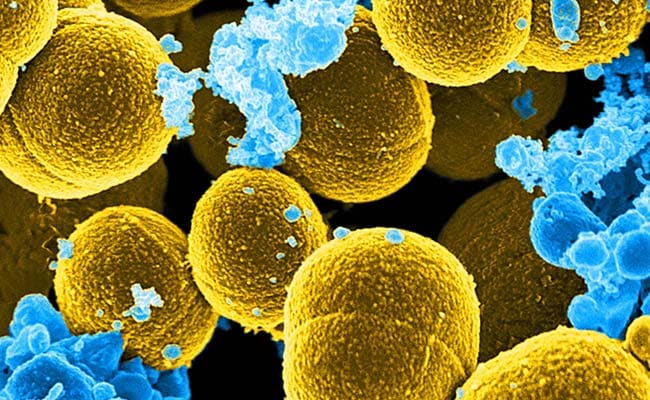A new AI tool, Google’s ‘Co-Scientist,’ has solved a superbug mystery in just 48 hours, astonishing microbiologists who have studied the issue for over a decade. Professor Jose Penades and his team at Imperial College London focused on superbugs resistant to antibiotics, developing a unique hypothesis regarding their formation and transmission. To test AI capabilities, they input their concepts, leading to the tool confirming their unshared hypothesis and proposing four additional valid ones, including one previously unconsidered by the researchers. Penades expressed amazement at the AI’s rapid insight and depth, prompting further exploration of its suggestions.
New Delhi:
An innovative artificial intelligence (AI) tool has cracked a superbug enigma in just 48 hours, astonishing scientists. Microbiologists have grappled with this intricate problem for over a decade, BBC reported.
Professor Jose Penades and his team at Imperial College London dedicated years to exploring why superbugs exhibit resistance to antibiotics. To test the capabilities of Google’s AI tool ‘Co-Scientist’, he decided to entrust it with the task of solving the mystery. To his surprise, the AI reached a conclusion in only two days.
Even more astonishing was the fact that his research had not yet been published, indicating that the AI could not have accessed the findings from public sources. This led Mr. Penades to speculate whether the AI had somehow retrieved information from his own system.
Mr. Penades recounted that while shopping with someone, he requested some time alone to process the information. He even reached out to Google to inquire if they had gained access to his computer. Google affirmed that they had not.
Mr. Penades and his research team were investigating how certain superbugs, which are harmful bacteria resistant to antibiotics, are formed. Their theory proposed that superbugs could transfer between species through the creation of a tail made up of various viruses.
This hypothesis was original to the research team, having not been published or circulated publicly. Yet, upon testing Google’s AI tool, it confirmed their hypothesis within just two days, aligning perfectly with their research findings.
Mr. Penades expressed that the AI tool did not merely replicate his work, but surpassed expectations. He noted that the AI not only provided the correct hypothesis but also suggested four additional ones, all of which were valid. He mentioned that one of these hypotheses had never been considered by his team, and they are now focusing their efforts on it.
